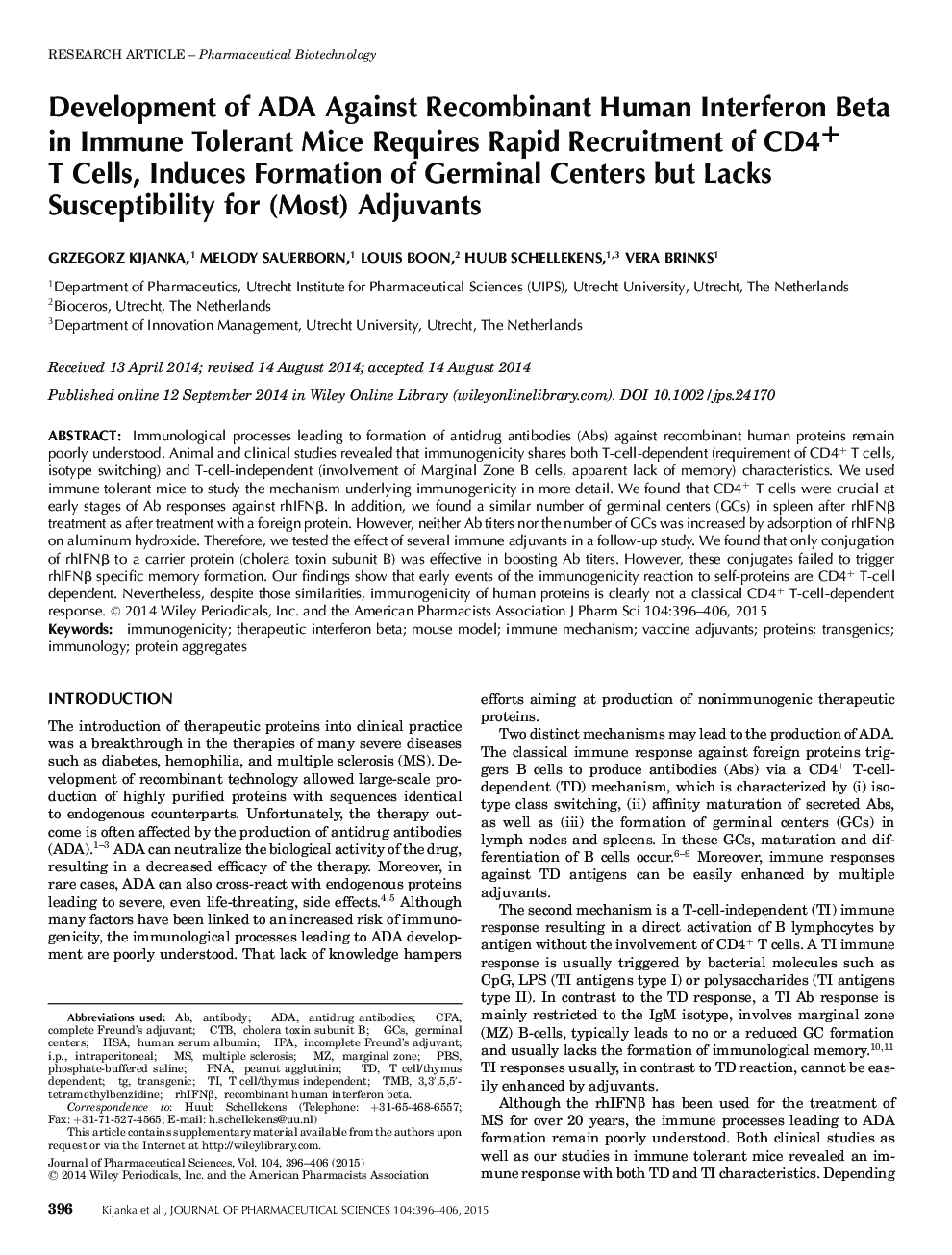| Article ID | Journal | Published Year | Pages | File Type |
|---|---|---|---|---|
| 10162162 | Journal of Pharmaceutical Sciences | 2015 | 11 Pages |
Abstract
Immunological processes leading to formation of antidrug antibodies (Abs) against recombinant human proteins remain poorly understood. Animal and clinical studies revealed that immunogenicity shares both T-cell-dependent (requirement of CD4 + T cells, isotype switching) and T-cell-independent (involvement of Marginal Zone B cells, apparent lack of memory) characteristics. We used immune tolerant mice to study the mechanism underlying immunogenicity in more detail. We found that CD4+ T cells were crucial at early stages of Ab responses against rhIFNβ. In addition, we found a similar number of germinal centers (GCs) in spleen after rhIFNβ treatment as after treatment with a foreign protein. However, neither Ab titers nor the number of GCs was increased by adsorption of rhIFNβ on aluminum hydroxide. Therefore, we tested the effect of several immune adjuvants in a follow-up study. We found that only conjugation of rhIFNβ to a carrier protein (cholera toxin subunit B) was effective in boosting Ab titers. However, these conjugates failed to trigger rhIFNβ specific memory formation. Our findings show that early events of the immunogenicity reaction to self-proteins are CD4+ T-cell dependent. Nevertheless, despite those similarities, immunogenicity of human proteins is clearly not a classical CD4 + T-cell-dependent response. ⬠2014 Wiley Periodicals, Inc. and the American Pharmacists Association J Pharm Sci 104:396-406, 2015
Keywords
Related Topics
Health Sciences
Pharmacology, Toxicology and Pharmaceutical Science
Drug Discovery
Authors
Grzegorz Kijanka, Melody Sauerborn, Louis Boon, Huub Schellekens, Vera Brinks,
